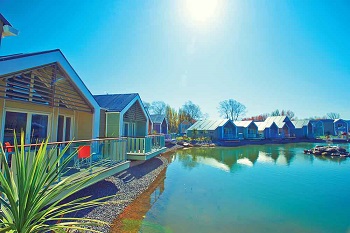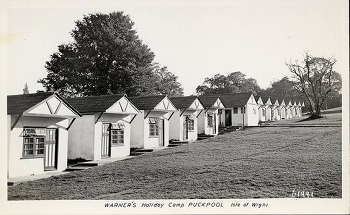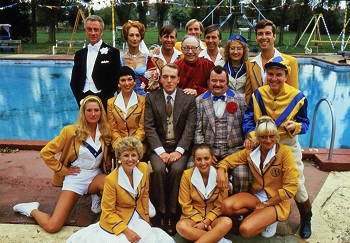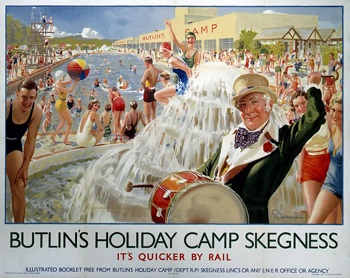Eight years after the financial crisis of 2008, we are still feeling its effects. Business confidence has not fully recovered, productivity has barely caught up to its pre-crisis levels, and consumers have not rediscovered what the great economist Keynes called their “animal spirits”. We are spending, but we are doing so cautiously, not least because few of us have had a decent pay rise for years.
Brexit, the fall of the pound, and the impact on finances
And then there is Brexit. Whatever your personal views on the result of the referendum, one undeniable outcome has been the fall in the value of sterling by around 10 per cent – a fall which seems to be here to stay for the foreseeable future. This has made foreign travel more expensive: air fares are rising, as is the cost of driving aboard because of the increased cost of fuel, while tourists are finding that their pound simply buys less at the bureau de change and when making purchases abroad.
There are also dark forces at work in the world. The Tunisian beach massacre of 2015, the attacks in Paris, Nice and Brussels: these have helped to create a sense that “abroad” is risky.
The rise of the staycation and holiday parks in the UK
As a result of all this, we British are increasingly turning our backs on foreign holidays and opting instead for what has become known as the “staycation”. The number of foreign trips Britons take is 16 per cent lower than it was before the recession, according to data from Visit England, the country’s national tourist board, while holidays in England rose by 12 per cent between 2008 and 2013. Research from Comparethemarket.com suggests that one in six Britons say weaker sterling is putting them off going abroad. Many UK hotels and hospitality companies reported that 2016 was one of the best ever for business, while this year’s August Bank Holiday saw 5.1 million people holidaying in the UK – an increase over 4.7 million last year, according to Visit England.
UK holiday destinations

And where are we taking those UK holidays? In many instances, we are going to holiday parks. Now, in case anyone has any residual memories or images of knobbly knee contests or draughty chalets with Tannoys waking “campers” at the crack of dawn for compulsory communal calisthenics, things have moved on. Butlins’ complex in Minehead, for instance, has undergone a makeover, with rainbow-hued chalets with landscaped gardens in a lakeside setting. In the old days, cold running water was considered a luxury; now, the hot tub has become a fixture at many holiday parks. And at Cheddar Woods Resort & Spa in Somerset, lodges have super-sized Apple televisions and all kinds of up-to-date connectivity for your family’s electronic devices (though there are also more vigorous activities on offer such as archery and fencing).
The origins of holiday parks

Holiday parks have their origins in a great British institution that goes back more than 100 years: the holiday camp. In the late 19th century, camping was becoming a leisure activity and in 1894 one of the first organised holiday camps was launched by Joseph Cunningham, a staunch Presbyterian, and his wife Elizabeth, on the Isle of Man, offering working men an active outdoor holiday. Cunningham’s Camp, as it was known, was initially an all-male affair, and campers were accommodated in a tented city accommodating up to 600. The holiday camp was born, and as time went on the tents gave way to huts and chalets.
As working people earned more, and began to get more leisure time, holiday camps mushroomed across the country. By the 1930s the first of the Warners chain had opened on Hayling Island in Hampshire and Billy Butlin was launching the first of his camps, at Skegness. When war broke out, holiday camps proved ideal ready-made accommodation for the services, so many of them were taken over by the government to become bases for service personnel (some were also used for internment). After the war, many of them reverted to their previous function.
1960’s and 1970’s holiday camps

In the 1960s and 70s holiday camps found it hard to compete with the new cheap foreign holidays; also, as a society we had become more individualised, less willing to take part in communal activities, and more demanding as consumers. But some camps survived and thrived, carving out a niche by offering inexpensive family breaks in chalets or caravans with activities for the youngsters and access to facilities such as swimming pools, water slides and the outdoors.
These days the term “holiday camp” is no longer used; most call themselves holiday parks, holiday centres or holiday villages. At Butlin’s, staff are discouraged from using the words “chalet” and “camp”; instead, they use “accommodation” and “resort”. Entertainment at today’s camps can be of a very high standard: Ronan Keating and Atomic Kitten are among the pop stars who have appeared at Butlin’s resorts, while the dance group Diversity will be appearing at Butlin’s throughout 2017. Butlin’s also offers themed musical weekends: soul, Seventies, Ibiza, and so on.

Short stay holiday parks
Many of us use holiday parks not for a full two-week vacation but for a short break, in addition to our main holiday. Hoseasons, for instance, says that for the company, 2016 has been “the year of the short break”, with a surge in three- and four-night bookings across its UK lodge, park and boating locations.
Center Parcs - a pioneer in the holiday park business, and one of the key businesses in the revival of the holiday park, having spread the idea from Holland - has built its business model on the short break, encouraging families and couples to pack their activities and enjoyment into a few days.
Center Parcs has also been raising the bar, quite literally, with the introduction in the past few years of its luxury tree houses, available at its parks in Sherwood Forest, Elveden Forest and Longleat. These tree houses are actually elevated accommodation complexes set among the trees, offering facilities such as pool rooms, saunas and hot tubs, with rooms connected by elevated walkways.
And the tree house trend is spreading: Forest Holidays, a holiday park in the Forest of Dean which offers secluded lodges in bucolic locations in this area of outstanding natural beauty, has sprouted its own tree houses; accommodating up to 10 people, these are aimed chiefly at groups of friends or extended family on short breaks. Hot tubs, too, are part of the package.
It’s all a far cry from the porridge and bacon, the “Good morning, campers”, the “Hi-De-Hi”, the cold running water and the glamorous gran contests of yesteryear.
Related reading from our news and media resource:
1 - Active parks help business bring in business
2 - Sports club furniture gives joggers a resting place